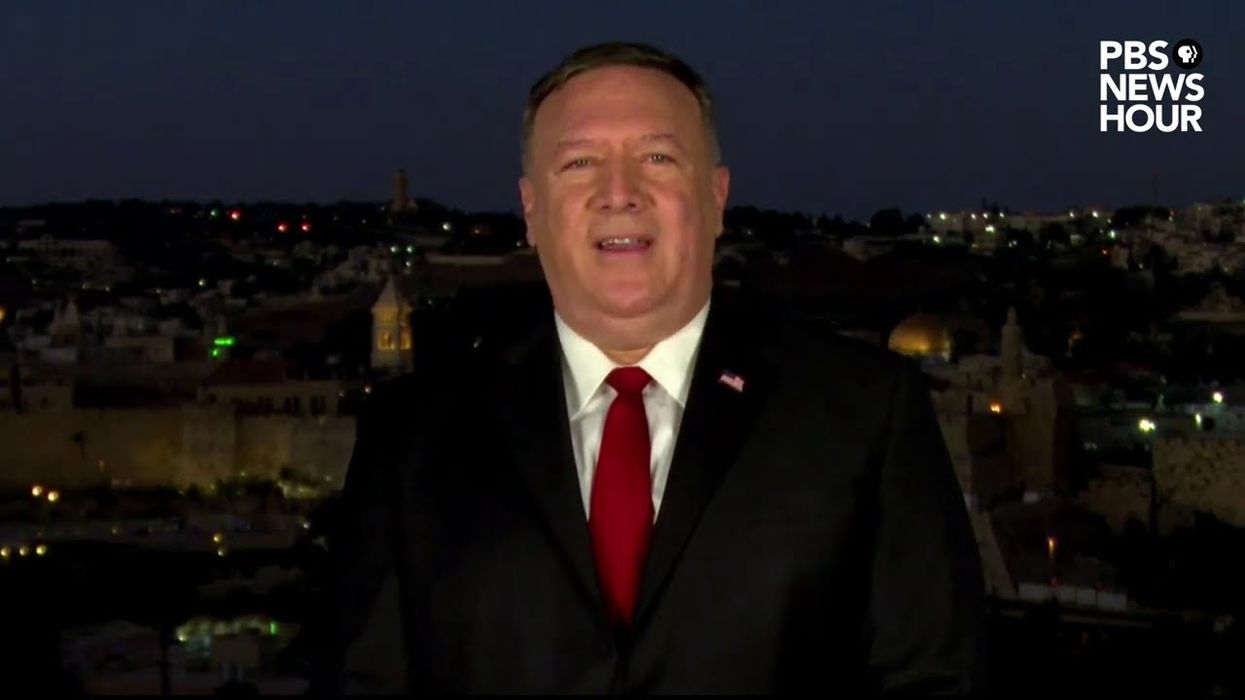Secretary of State Mike Pompeo speech's on Tuesday at the Republican National Convention was unprecedented. No prior sitting secretary of state had given a speech at a party convention. Diplomats and federal employees have typically stayed away from partisan activity and there are rules in place that prevent federal employees from being involved in partisan politics. The Hatch Act, passed in 1939, prohibits all federal employees — except the president and vice president — from engaging in various partisan political activities. For example, the law states that federal employees cannot"use their official authority or influence to interfere with or affect the result of an election." Pompeo did not refer to himself as secretary of state in the video, but he did record the video during an official visit to Israel.
Since Pompeo is part of the National Security Council, he is subject to further restrictions. Such federal employees who have more restrictions cannot "take an active part in partisan political campaigns, by, for example: Campaigning for or against a candidate or slate of candidates. Making campaign speeches or engaging in other campaign activities to elect partisan candidates." Pompeo violated both of these restrictions.
Additionally, a State Department memo on Hatch Act restrictions from December 2019, specifically states, "Senate confirmed Presidential appointees may not even attend a political party convention or convention-related event." Pompeo was confirmed by the Senate as secretary of state in 2018.



















Trump & Hegseth gave Mark Kelly a huge 2028 gift